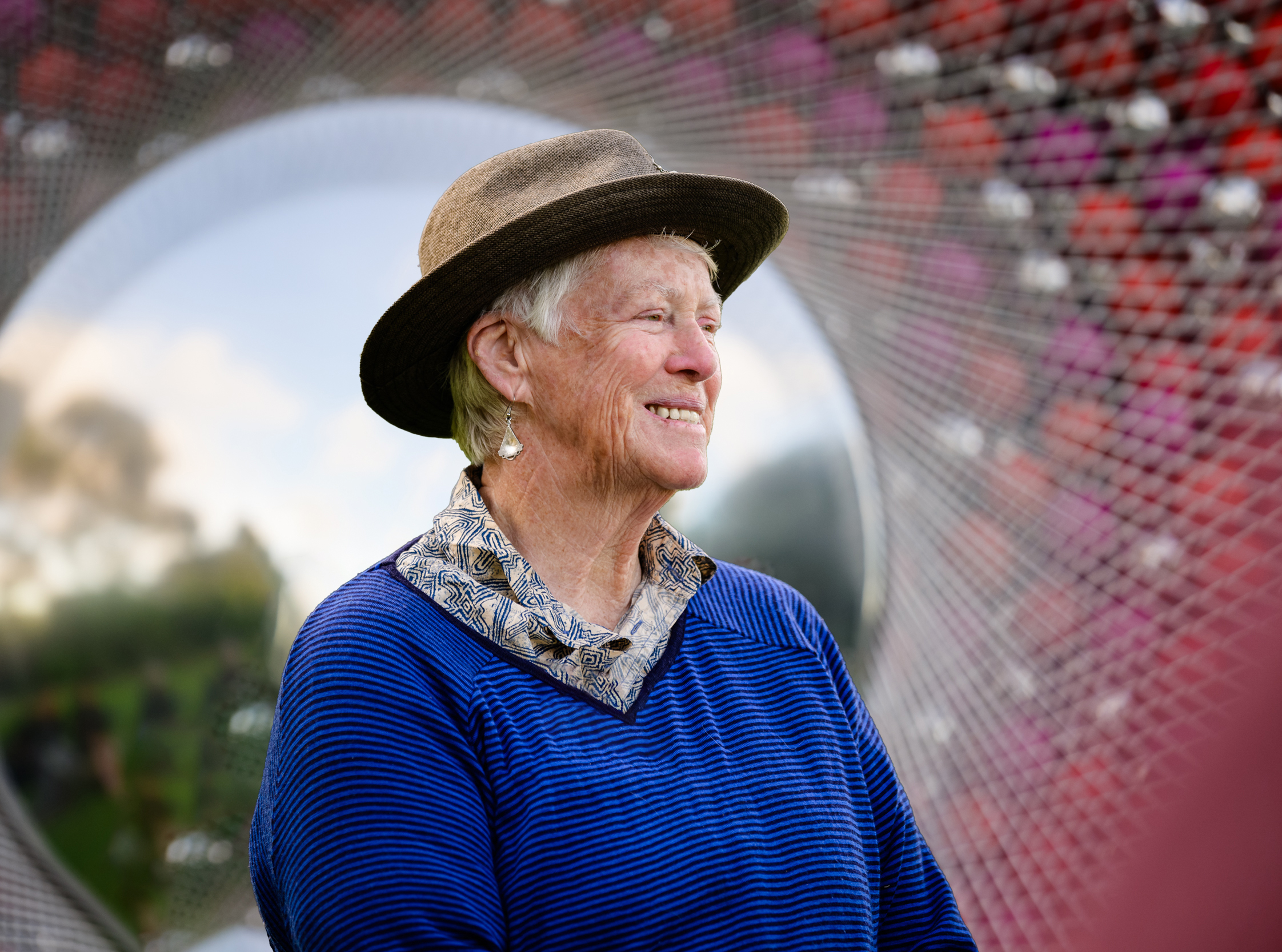Miriam Saphira
Profile
Miriam Saphira CNZM was born in 1941 in Kaimiro, Taranaki, Aotearoa and currently lives in Matatoki, Coromandel Peninsula. As a clinical psychologist with a strong sense of service to communities, Miriam has fought for human rights on multiple fronts particularly in the areas of child abuse, domestic violence, underage prostitution and homophobia.
A psychologist, a writer, an educator and an artist, Miriam has authored books on the sexual abuse of children, lesbian motherhood and run training workshops for over forty years. She also writes poetry, short stories, and factual articles as well as exhibiting etchings and oil paintings. Miriam is a founding member of the New Zealand Aids Foundation (now the Burnett Foundation Aotearoa) and the founder of the Charlotte Museum in Tāmaki Makaurau, dedicated to lesbian her story.

Insight
The loudest statement in the fewest words, Miriam’s words go straight to the heart of gender-based inequality and injustice. Her singular focus on violence doesn’t suggest there is only one aspect to gender inequality, but makes clear that even if we could eradicate gender-based disparities in education, the workplace, pay equity and other areas, we will not achieve equality as long as violence to women exists.
In her professional life as a psychologist, as in her words, Miriam seeks to tackle inequality by focusing on root causes. Her trail-blazing work over many years with incarcerated male violent offenders dealt with the complex social-cultural issues that create the environment for violence to be normalised. To successfully address violence towards women, we need to also address the context within which violence occurs.
Te Reo Glossary
Te Reo Glossary
ākonga
student, pupil
alofa
love, affection (Cook Islands Māori language)
Aotearoa
New Zealand
aroha
love, affection
haere rā
goodbye, farewell
hapū
subtribe, part of a kinship group
ira tangata
term used for intersex in a Māori context
irawhiti
term used for transgender in a Māori context
Itāria
Italy
iwi
extended kinship group descended from a common ancestor and associated with a distinct territory in Aotearoa
kairangahau
researcher
kaitiaki
guardian
kaitiakitanga
guardianship, stewardship
kia kaha ngā wāhine toa
be strong woman warriors
kia ora
hello, greetings
kia orana
hello, greetings (Cook Islands Māori language)
kōrero
conversation, discussion
kuia
female elder
mahi
work
māmā
mother, mum
mana
status, prestige, authority,
Māngere
a major suburb in South Auckland, New Zealand
Māori
Indigenous people of Aotearoa New Zealand
mauri
life force, life principle
moana
ocean, sea
Ōtautahi
Christchurch, city in South Island, New Zealand
Ōtepoti
Dunedin, city in South Island, New Zealand
pākeha
New Zealander of European/foreign descent
peka
branch (of a tree, river, organisation)
Pōneke
Wellington, Capital of New Zealand
rangatahi
youth, young people
takatāpui
queer, gay, rainbow community
Tāmaki Makaurau
Auckland, city in North Island, New Zealand
tapu
sacred, prohibited
tautoko
to support, advocate
Te Kāhui Tika Tangata
Human Rights Commission, New Zealand
Te Kaunihera Wahine o Aotearoa
National Council of Women of New Zealand
Te Kotahitanga
Autonomous Māori Parliament from 1892 to 1902
Te Moana-Nui-ā-Kiwa
the Pacific Ocean
te reo
the Māori language
Te Ropu Wahine Maori Toko i te Ora
Māori Women’s Welfare League
Te Wāhi Wāhine o Tāmaki Makaurau
Auckland Women’s Centre
tikanga
protocol, correct procedure
wāhine
woman, women
wāhine kaha
strong woman/women
waiata
song, chant
waiata taitoko
song of support usually sung after a speech
wairua
spirit, soul
whakapapa
genealogy, lineage
whānau
family, extended family group
whare
house, building